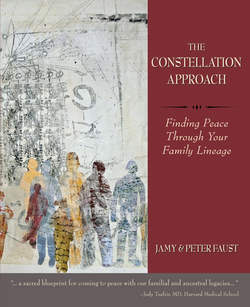Читать книгу THE CONSTELLATION APPROACH - Jamy Faust - Страница 8
На сайте Литреса книга снята с продажи.
Foreword
ОглавлениеWe live in times of massive and irreversible global change. Accelerating destruction of the biosphere by the onslaught of petroleum-based industrial civilization is bringing about what evolutionary scientists call “the sixth extinction.” Population pressures are combining with environmental degradation to create a “perfect storm” that threatens the foundations of the social order—even as feckless politicians squabble about protecting their parochial interest.
These rapid global changes demand that once-isolated fields be studied as multidimensional systems. Such a systemic approach, requires, for example that leaders in the fields of medicine and psychotherapy work together to forge new methods for healing and intervention. Psychotherapy can no longer be viewed as a special sort of private interaction between two individuals in a closed room, but necessarily involves consideration of the complex web of relations existing in families, across multiple generations and within communities.
This multidimensional perspective to approaching global challenges has given rise to a systemic approach to multigenerational family therapy. Numerous individuals have developed this approach over the past thirty or so years both in Europe and the United States. One of the most original and influential pioneers of the family systems approach is the German former priest and family therapist Bert Hellinger, who is one of the three main teachers whom The Constellation Approach founders Jamy and Peter Faust credit as contributing to their own unique approach. Perhaps because of his history as a missionary priest in South Africa, Hellinger discovered and taught that recognition of the spiritual reality of pre-birth and post-death soul consciousness—a kind of consciousness—can be accessed through simple perception, without verbal analysis, of the relative postures and positioning of bodies in space.
As Jamy and Peter Faust put it, there are certain “threads of consciousness” that connect family members regardless of time-space distances and regardless even of the boundaries of birth and death. It is here that we find in the Hellinger-influenced systemic approach the most radical departure from conventional individual or family systems therapists. The majority of family systems therapists, as well as most of the Western-educated public, still carry an almost instinctive distrust or resistance to any consideration, or even discussion of soul—the reality of what comes before conception/birth and after death. These are topics which cannot be reasonably discussed in any meetings or publications of therapists that adhere to the current professional paradigm.
My own work as a psychologist exploring different states and dimensions of consciousness in psychotherapy found a strong resonance with Hellinger’s teachings, although I came to my work from a different direction and with a different methodology. In addition, the Fausts credit the body-oriented work of Barbara Brennan with subtle energy-fields as another of the sources of their uniquely synthesized Constellation Approach. All of these approaches, including Jamy and Peter’s own application, recognize the primacy of perception over theory. The subtle energy-fields that both reflect and express our inner states can be felt and perceived, and as Hellinger continually emphasizes, his approach is phenomenological—i.e. based on perception not on theoretical speculations about inner complexes and the like.
I especially appreciate how Jamy and Peter incorporate in their Constellation Approach “statements of empowerment.” “Statements of empowerment” are one of the strongest and most effective innovations that Hellinger introduced into the practice of family therapy. Most forms of therapy use various derivations or forms of questioning to elicit inner hidden feelings and perceptions in the client or patient. In the approach that Hellinger pioneered and that the Fausts use to great effect, the client may be asked or prompted to make what are called “statements or words of empowerment” to another member of their family system, or to that other member’s “representative.” The statements are empowering because they express the actual innermost truth of a situation or relationship from the perspective of soul, a perspective that never wavers from the truth, without defense or pretense.
Such statements of course cannot be faked. They must be true for that individual in that situation or relationship. It is part of the skill and intuitive insight of the therapist in those situations to find the statement that exactly expresses that truth. In the case descriptions included in this book, the reader will find several examples of individual clients relating how their empowerment statements liberated them from longstanding patterns of disconnect and negativity. Jamy and Peter are to be congratulated for their clear-sighted and warm-hearted presentation of this profound work of healing.
Ralph Metzner, Ph.D.
Professor Emeritus, California Institute of Integral Studies
Author of The Unfolding Self and The Well of Remembrance
